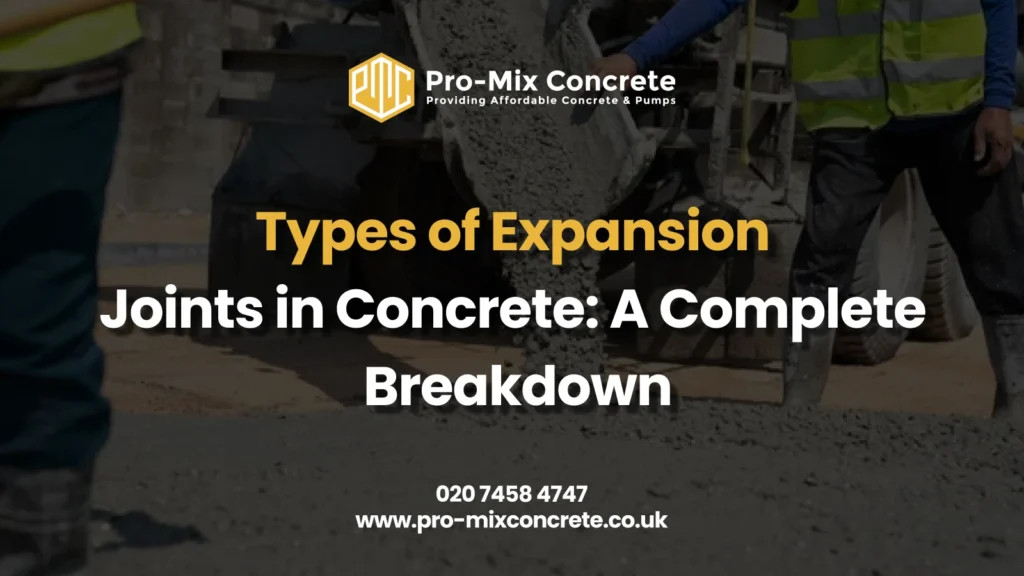When planning a concrete project, the first question is always about cost. Buying cement bags and mixing everything yourself seems like the smart way to save money. However, the numbers change once you add up the time spent working, equipment rental fees, and the materials that get wasted along the way. A small garden path might actually cost less with DIY mixing because you only need a tiny amount. But a driveway is a different story entirely. Understanding both approaches helps avoid costly mistakes and frustrating delays that come from picking the wrong method for your specific project needs.
Get accurate concrete ready mix cost estimates as per your project’s specifications. Pro-Mix Concrete provides transparent pricing and delivery options across the region.
What Are These Two Options?
Before examining costs, it’s important to understand how these two approaches work. They operate completely differently, and that difference matters when calculating expenses.
Ready-Mix Concrete
Ready-mix concrete shows up at your site in a truck, already mixed and ready to use. A factory has already combined everything perfectly (cement, sand, gravel, and water) in exactly the right amounts. The truck’s spinning drum keeps everything fresh and well-mixed while it travels to your location. Once it arrives, the concrete simply pours out and gets smoothed into place.
Different types are available depending on project requirements:
- Regular strength for everyday projects like patios and paths
- Extra strong for driveways or weight-bearing applications
- Quick-setting for projects needing faster use
- Colored or textured finishes for decorative applications
The main benefits include:
- Precise measurements: Machines measure everything accurately every time
- Guaranteed quality: Every batch gets tested before leaving the plant
- Time savings: No hours spent mixing, just pouring and finishing
- Building compliance: Automatically meets building standards and codes
Site-Mixed Concrete
On-site mixed concrete means buying all ingredients separately and mixing them on location. This involves purchasing bags of cement, piles of sand, and gravel, then following a mixing ratio to combine everything. An electric mixer (usually rented) or manual hand mixing with a shovel are the options. Hand mixing exhausts workers quickly and produces inconsistent results.
The process involves these steps:
- Buy cement bags, sand, and gravel separately
- Measure everything with buckets or shovels
- Mix in a rented machine or by hand on boards
- Add water gradually while checking consistency
- Pour immediately because the setting begins within minutes
Site mixing appears cheaper initially because only raw materials need to be purchased. However, many additional costs emerge once everything gets factored in.
What Does Each Option Actually Cost?
The price tag on bags at hardware stores tells only part of the story. The complete picture requires examining all expenses.
Ready Mix: The Full Cost Breakdown
Ready mix companies charge per cubic meter depending on the type of concrete needed. Standard mixes cost less than specialised formulations, and prices vary by region based on local competition and material availability.
Beyond the base price, other costs include:
- Delivery charges: Most plants deliver for free if you’re within 10-15 kilometres. If your project is further away, expect to pay extra transport fees based on the distance.
- Minimum orders: Suppliers need you to order at least 1 cubic meter. Anything less comes with surcharges, and you’ll have 15-20 minutes to unload before waiting fees start adding up.
These costs might look expensive at first, especially with that minimum order requirement. But what you’re actually paying for is precision, consistency, and time savings. Every batch gets tested and certified at the plant, computerised systems ensure perfect measurements every time, and you can start pouring immediately without spending hours mixing concrete yourself.
Site Mixing: The Hidden Costs
Site mixing appears inexpensive until the actual work begins. Several costs emerge that aren’t obvious at first.
- Material costs: Bagged cement costs much more at stores than the bulk rates batching plants pay. Hardware stores also charge higher prices for sand and gravel compared to trade suppliers.
- Equipment rental: Renting a mixer adds to the budget unless one is already owned. Daily rates suit short jobs while weekly rates work better for longer projects. Smaller mixers require multiple batches to complete the work.
- Labour costs: Mixing requires 2-3 people working together for efficiency. Fatigue reduces productivity after several hours. Time spent mixing reduces the time available for proper finishing work.
- Material waste: Beginners typically estimate quantities incorrectly. Running short creates weak spots in the concrete. Excess concrete hardens and requires paid disposal at facilities.
When Each Option Makes Financial Sense
The right choice depends entirely on specific project circumstances. Different scenarios favour different approaches.
Ready Mix Works Better When…
Once projects reach 1 cubic meter or more, ready mix becomes the more economical choice. Delivery fees become proportionally smaller when spread across a sufficient quantity.
- Larger projects over 1 cubic meter: A single truck delivery eliminates the need for mixing batch after batch throughout the day. Teams can focus entirely on pouring and finishing rather than waiting for the next mix.
- Projects requiring special concrete: Waterproof concrete, specific strength ratings, and self-leveling formulations require precise ingredient control. These specialised mixes are nearly impossible to replicate accurately with manual mixing and basic equipment.
- Projects with strict deadlines: Pouring foundations before inspector visits or completing structural elements within limited weather windows requires a reliable concrete supply. Building inspectors reject uncertified concrete for load-bearing applications because liability and safety concerns make documentation essential.
Site Mixing Works Better When…
Small jobs can work out cheaper with self-mixing. Very small quantities make delivery charges disproportionately expensive compared to the actual concrete cost.
- Small DIY jobs under 0.5 cubic meters: Setting a few fence posts or repairing some steps uses minimal concrete. Minimum delivery charges alone typically exceed the cost of purchasing a few bags for self-mixing.
- Equipment already owned: Having a concrete mixer sitting in storage means no rental fees, which changes the financial equation completely. Working on weekends at a comfortable pace removes time pressure from the decision.
- Truck access physically impossible: Narrow side passages, steep hillsides, or gated communities with tight turns sometimes prevent truck entry entirely. Wheelbarrowing bags of cement to secluded locations requires more physical effort but may be the only practical option.
The Surprise Costs That Emerge Later
Both options include unexpected expenses that people typically discover only after committing to an approach. Understanding these ahead of time helps with better decisions.
Ready Mix Surprises
Getting the truck to the site creates more complications than anticipated:
- Trucks require 3 meters of width to navigate through gates and passages
- They need 4 meters of overhead clearance for chute operation
- Adequate turning radius is essential for positioning near pour locations
When trucks cannot get close enough to work areas, concrete pumps become necessary. This equipment extends reach using long hoses, which solves access problems but adds several hundred dollars to the total cost.
Timing and weather charges include:
- Weekend deliveries incur Saturday premiums
- Rush orders within 24 hours face expedited service fees
- Rain delays may trigger rescheduling charges
- Extreme temperatures require special additives that increase prices
- Winter concrete with antifreeze compounds costs considerably more
These charges are at least predictable because companies disclose them before orders get placed.
Site Mixing Surprises
DIY mixing creates unexpected costs through mistakes and inefficiencies rather than predictable fees.
Common mistakes include:
- Adding too much water permanently weakens concrete
- Forgetting plasticisers makes finishing extremely difficult
- Contaminated tools introduce debris that compromises strength
Cleanup proves more difficult than anticipated:
- Concrete adheres stubbornly to tools, clothing, and surrounding surfaces
- Pressure washers and specialised cleaning solvents become necessary purchases
- Hardened residue on borrowed equipment causes permanent damage
Storage and disposal create ongoing problems:
- Bagged cement absorbs moisture from the air and deteriorates
- Opened bags lose effectiveness rapidly
- Leftover mixed concrete hardens into waste requiring paid disposal at proper facilities
Quality inconsistency becomes visible:
- Each batch emerges slightly different, despite careful measurement attempts
- Colour variations appear across finished projects
- Strength varies from section to section, though these differences aren’t visible
Need help calculating exactly how much concrete a project requires? Our concrete calculatore helps determine precise quantities to avoid wasting money on excess material or experiencing shortages during pours.
Quality Matters More Than Initial Price
People often overlook quality when comparing costs between options. Concrete that seems cheap initially but fails within a few years ends up costing far more in replacements and repairs. Long-term performance and durability determine the true value of concrete rather than just the upfront price paid during installation.
Why Consistency Saves Money
Professional batching plants achieve consistent quality because automated systems handle the work:
- Accurate measurements: Scales measure ingredients to within 1% accuracy, impossible to achieve with buckets
- Laboratory testing: Facilities test compressive strength at 7, 14, and 28 days after batching
- Documentation: Certification paperwork satisfies building inspectors without disputes
- Uniform strength: Every cubic meter in order has identical strength properties
Manual mixing introduces significant variables that affect concrete quality. Getting water content wrong by even a small amount changes final strength by 25% or more. Incomplete mixing leaves dry pockets and weak zones that visual inspection cannot reveal until structural failure occurs.
Consistent quality particularly matters for:
- Driveways that must support vehicles without developing cracks
- Foundations that cannot settle unevenly and damage structures
- Any application where building inspectors require certification
Saving money during installation provides no benefit when demolishing and replacing failed concrete within a few years becomes necessary.
Environmental Factors Actually Affect Costs
Environmental responsibility impacts expenses in practical ways beyond ethical considerations.
Ready mix advantages include:
- Ordering exact quantities minimises surplus material requiring disposal
- Batching plants recycle returned concrete into aggregate for future batches
- Environmental disposal costs are already included in quoted prices
Site mixing challenges include:
- The trial-and-error approach generates significant material waste
- Failed batches require paid disposal at approved landfill facilities
- Concrete-contaminated water creates environmental compliance issues
- Equipment deteriorates faster and requires more frequent replacement
These expenses accumulate gradually in ways that never appear in initial cost estimates.
Making the Decision Clear
This decision is simplified by examining clear criteria. Project characteristics determine which option makes the most financial sense.
Choose ready mix when:
- Projects require more than 1 cubic meter of concrete
- Building codes require certified strength documentation
- Working within strict deadlines
- Professional appearance and quality determine project success
- Multiple workers cannot dedicate hours to mixing
Choose site mixing when:
- Total requirements stay well under 0.5 cubic meters
- Concrete mixing equipment is already owned
- Working at a comfortable pace without time pressure
- Delivery trucks physically cannot access work sites
- Previous experience and knowledge of proper mixing exist
Checklist before deciding:
- Calculate the complete concrete ready mix cost, including concrete, delivery, and additional charges
- Calculate comprehensive DIY costs, including materials, equipment rental, and realistic labour value
- Assign an honest monetary value to time, including opportunity costs
- Add 15% contingency for inevitable waste and mistakes
- Consider quality requirements and whether this needs to last for decades
- Review the weather forecast and project deadline constraints
Comparison Table: Ready Mix vs Site Mix
|
Aspect |
Ready Mix Concrete |
Site-Mixed Concrete |
|
Initial Cost |
Higher for small jobs |
Lower, but rises with scale |
|
Labour/Time |
Minimal (delivered) |
High (manual mixing) |
|
Quality |
Consistent, regulated |
Variable, depends on skill |
|
Waste |
Minimal |
Higher risk |
|
Equipment |
Included with service |
Need to buy or rent |
|
Best Use |
Medium/large jobs |
Small or custom-mix jobs |
Bottom Line
Ready-mix concrete costs more per cubic metre than buying raw materials, but once labour, equipment, time, and waste are factored in, it becomes the more economical option for projects over 1 cubic metre. Site mixing still works for very small DIY jobs where tools are already available, and labour is free. Larger projects benefit from the consistency and efficiency of professional batching, while small repairs can be handled with DIY mixing when the right skills and equipment are on hand. Looking at all direct and hidden costs together shows which option truly saves money.
Pro-Mix Concrete delivers high-quality batched concrete to sites across the UK. Our modern plants produce consistent, certified mixes that meet British Standards every time. Pricing stays competitive, and quotes include delivery upfront so there are no surprises later. Scheduling stays flexible to match tight timelines and shifting weather. Our fleet reaches both urban and regional locations efficiently, keeping projects on track from the first pour to the last.
Frequently Asked Questions
What's the minimum order for ready mix?
Yes, minimums exist. Most suppliers require at least 1 cubic meter. Smaller quantities either aren’t available or incur substantial surcharges. Some companies offer mini-mix trucks for 0.5-1 cubic meters at higher rates.
How does someone estimate the amount needed?
Measure length times width times depth in meters to get cubic meters. Add 10% extra for spillage and irregularities. Online calculators or supplier assistance simplifies the process considerably.
Is ready mix always stronger?
Not inherently stronger, but consistently achieves specified strength through computerised precision. DIY mixing produces variable strength depending on accuracy. Maintaining identical quality across batches requires considerable mixing experience.
Can old concrete be recycled?
Yes, crushed concrete works as aggregate in new mixes, reducing costs and waste. However, it’s unsuitable for structural applications needing virgin materials. Most batching plants incorporate recycled aggregates in appropriate designs.
What about delivery fees and hidden charges?
Delivery is free within 10-15 kilometres, then increases with distance. Waiting time beyond 15-20 minutes incurs hourly charges. Weekend, evening deliveries, short-load orders, and concrete pumps add extra costs.
- Dennis Broderick
- Dennis Broderick is the founder and owner of Pro-Mix Concrete Company, a trusted name in ready-mix concrete solutions across the UK. With over 20 years of hands-on experience in the construction and concrete industry, Dennis brings unmatched expertise, practical insights, and a commitment to quality on every project - from residential driveways to large-scale commercial developments.
 BlogFebruary 24, 2026What Is C35 Concrete Used For? Applications & Uses Explained
BlogFebruary 24, 2026What Is C35 Concrete Used For? Applications & Uses Explained BlogFebruary 24, 2026Types of Expansion Joints in Concrete: A Complete Breakdown
BlogFebruary 24, 2026Types of Expansion Joints in Concrete: A Complete Breakdown BlogFebruary 23, 2026What Is C25 Concrete Used For? Uses & Applications
BlogFebruary 23, 2026What Is C25 Concrete Used For? Uses & Applications BlogFebruary 22, 2026Cost Of Ready Mix Concrete Per M3 In Uk
BlogFebruary 22, 2026Cost Of Ready Mix Concrete Per M3 In Uk





